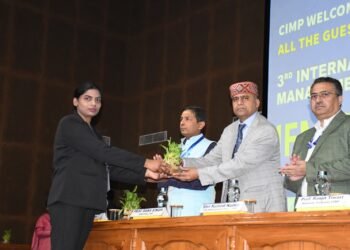India has always invested in knowledge and this government, from 2014, has continually seen how India can become a knowledge-based society, says Finance minister Nirmala Sitharaman
New Delhi: Union finance minister Nirmala Sitharaman on Sunday stressed the need for continued use of corporate social responsibility (CSR) funds in research and development (R&D) to foster innovation and facilitate industry-academia collaboration. According to the relevant guidelines, every company has to spend 2% of the average net profits made during the preceding three years on CSR projects.
“Such SCR spend on research is bearing substantial outcomes and it should continue. I would think the Indian government policy has also helped in moving forward on these aspects,” the minister said. During a CSR summit held at Indian Institute of Technology Madras (IIT Madras), she interacted with a cross-section of industry leaders and students on how to make CSR more meaningful and enable long-term research collaboration.
Rs. 27,000 crore for R&D
The department of science and (DST) alone, only through IITs, has provided funding of Rs. 27,000 crore for R&D. In addition, DST has spent Rs 53,000 crore on innovations through non-IIT institutions across the country. “Start-ups are provided almost 80% rebate in the costs of filing patents. India has always invested in knowledge and this government, from 2014, has continually seen how India can become a knowledge based society,” she said.
Sitharaman inaugurated a National Centre for Precision Medicine in Cancer, which attracted funding of Rs 29.73 crore with Karkinos Healthcare.
Finance Minister Commits to Improving Trade Facilitation and Building Energy-Efficient Customs Houses
Separately, participating in the stone-laying ceremony of the nine-storeyed ‘Vaigai’ Customs House Complex here, Sitharaman said the government is committed to improve trade facilitation for every stakeholder, including Customs Department personnel and those involved in the trading communities.
In trade facilitation, the country actually stands to benefit from and also to set standards on the way in which its customs or tax officials and their workplaces, she said. Beyond construction of a new building, these days emphasis is also given on how energy-efficient the buildings would be so that there is no pollution or disturbance to anyone, she said.
“There was a time when we thought that we have to build office space based on officers, staff and requirements. These days, it is also looking at how green our buildings are going to be, and how energy-efficient these buildings will be,” she said. (Agencies)




















